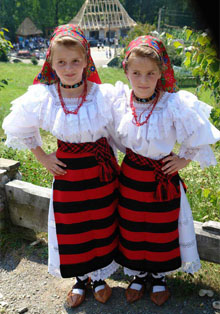Pedro González
Journalist
The old politics is dying. This is demonstrated by the latest French regional elections, in which 66% of the electorate ignored their civic obligation to vote. The fact that the elections and their winners have every legitimacy does not detract from the fact that citizens have had enough of the politicking – politique politicienne, in the French expression – of the parties, which they blame in their entirety for not resolving the real problems that beset them.
It is a situation that favours the emergence of providential men and women. In an age of haste and dizzying change, ordinary citizens have less and less patience for things to develop according to procedures that they judge to be slow, dangerously obsolete and exasperatingly expensive.
It is therefore a delicate moment, in which democracy, at least as we have known it, can either develop towards more participatory forms in keeping with the times, or swing towards providential figures who would be forgiven anything, even exercising power in a dictatorial or tyrannical manner, as long as they offer solutions in return, even mere decoys of a better future.
France encountered such a character just over four years ago. This is the only way to explain why a man without a party and without any territorial institutional establishment won not only the presidential elections but also the subsequent legislative elections by a landslide. In reality, he promised more or less the same as his predecessors, that is, a raft of essential reforms to put the country back at the forefront of a Europe in which Germany reigns supreme, practically by default.
One after another of his predecessors, from the centrist Giscard d’Estaing to the socialists Mitterrand and Hollande, via the neo-Gaullists Chirac and Sarkozy, had to abandon their reformist pretensions as soon as the disapproving murmur of the street turned into a clamour. Macron, who has withstood almost two years of the very strong pressure of the “yellow waistcoats”, is heading into the last months of his first term in office with his programme of reforms half-finished, in addition to the growing disaffection of the citizens.
Always stuck in the same loop
The French political class, like much of the rest of Europe, continues to do its own thing. The primary analysis of these latest elections points to the Macron-Le Pen duopoly as the big losers: the former for having failed to get more than 7% of the vote for his party, La République en Marche (LREM), out of the scant 33% of French people who bothered to vote; the latter, because his National Rally (RN), heir to the anathematized National Front, has still not governed a single French region after more than a quarter of a century of trying.
According to the old nomenclature, the left, amalgamating the Socialist Party (PS), the Communist Party (PCF), Europe Ecology The Greens (EELV) and the extremist Europe Insubordinate (EI), boasts of having won second place in terms of the number of votes, and above all of maintaining its power over the five regions it already governed.
But, where the euphoria has grown is in the right-wing camp, where the traditional conservatives, today grouped in The Republicans (LR), seem to have consummated the establishment of new leaderships, who aspire to stand up to Emmanuel Macron in next year’s presidential elections. They are: Xavier Bertrand, who will head the country’s poorest region, the northern Hautes-de-France; Laurent Wauquiez, who is renewing his mandate in the very rich Auvergne-Rhône-Alpes, and Valérie Pécresse, who will preside over the most important, Ile-de-France, made up of Paris and its periphery.
France has never had a female president, only a female prime minister, Edith Cresson, who did not even make it two years in office, besieged by the insidiousness of a political class that would never admit to being led by a woman. Nor, of course, has Marine Le Pen, who, although she has managed to win several elections in the first round, has always found herself in the second and decisive round up against the so-called “anti-fascist cordon sanitaire” of all the other parties.
Valérie Pécresse, the most outspoken, claims to want to free France from the pincer that she believes Macron and Le Pen represent. In addition to the candidate or candidates put forward by the left, among the conservatives there will a priori be many who want to unseat Macron from the Elysée Palace. In addition to the aspirations of Bertrand, Wauquiez and Pécresse, others such as Michel Barnier, the former minister and former member of the European Commission and fierce Brexit negotiator with the British, and the former prime minister and mayor of Le Havre, Édouard Philippe, are already beginning to reveal theirs.
There are ten months to go until the elections, but at the present time none of the potential contenders has put forward anything that does not resemble the old politics. And the results of the last elections are not exactly encouraging. There is certainly a danger that going to the polls will no longer be a celebration of democracy, but a cumbersome formality that only serves to justify the political class’ pay and privileges.
© All rights reserved






